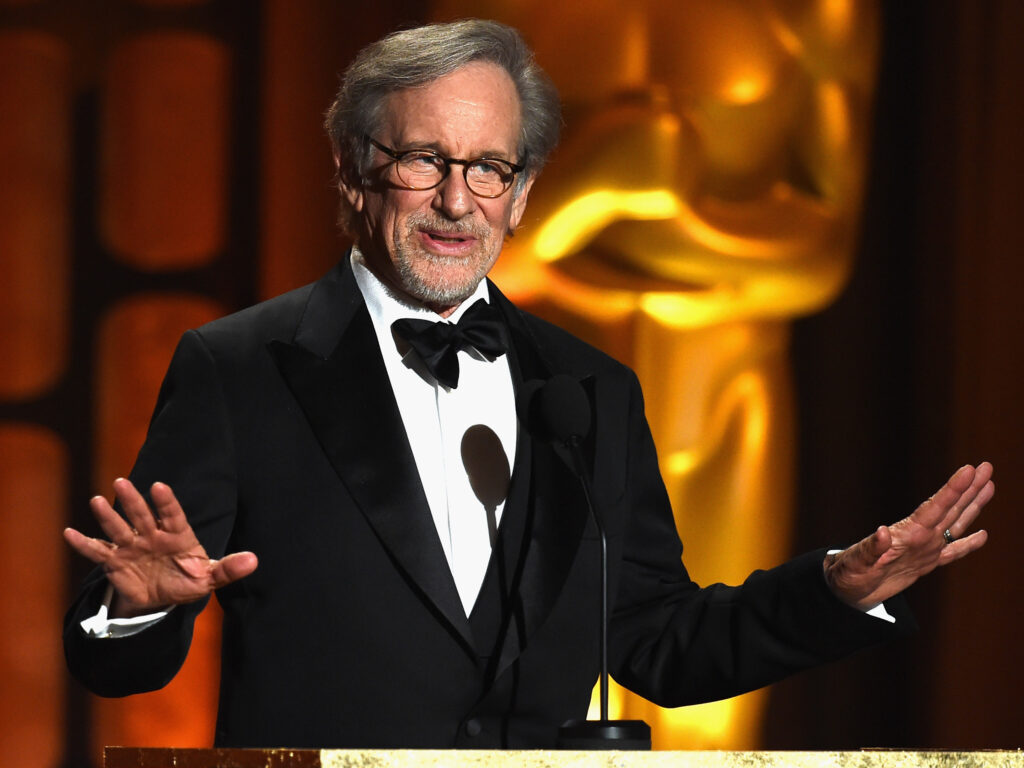Steven Spielberg, the mastermind behind some of the most iconic films in cinema history, has often imbued his movies with personal experiences, though none perhaps as deeply personal as his 2022 semi-autobiographical drama, The Fabelmans. While Spielberg’s oeuvre is marked by its variety, showcasing an enviable versatility, it’s his portrayal of intimate, often hidden aspects of his own life that imbues his work with such authenticity and emotional depth.
The Discovery That Changed Everything
Long before his name became synonymous with Hollywood blockbusters, Spielberg was just a teenager with a Super 8 camera, zealously documenting the world around him. By eighteen, he had created fifteen short films, but it was a small, seemingly insignificant frame that would alter his perception of his family forever. This frame, captured inadvertently, revealed a painful truth: his mother, Leah Adler, was having an affair with his father’s best friend.
This revelation didn’t come during the act of filming but later, as Spielberg reviewed the footage on his editing machine.
It wasn’t until I saw a frame around it later, on my editing machine, that I believed it.
The young Spielberg confronted his mother about the affair, a secret that the two would harbor for most of their lives.
This pivotal moment underscored for Spielberg the profound power of cinema—not just to entertain but to unveil truths, shaping his approach to filmmaking and altering his familial relationships.
After that I no longer looked at her as a parent. I saw her as a human with all the vulnerabilities I saw in myself.
This shift in perception marked the beginning of a complicated, yet deeper understanding of his mother’s fragility and humanity.
A Film Born from Personal Truths
The story lingered in the background of Spielberg’s life and career until 2005, when he shared the secret with screenwriter Tony Kushner. Kushner urged Spielberg to bring this personal story to the silver screen. This nudge, combined with encouragement from his late mother, set the wheels in motion for The Fabelmans. Spielberg’s creation of the film became a therapeutic endeavor, not just a cinematic project, helping him reconcile with his past and bring his family narrative into a new light.
As Spielberg ventured into the depths of his family’s story, he discovered a potent therapeutic tool in filmmaking.
This film is, for me, a way of bringing my mom and dad back. And it also brought my sisters, Annie, Susie, and Nancy, closer to me than I ever thought possible. And that was worth making the film.
This endeavor, while deeply personal, resonated with universal themes of family, forgiveness, and understanding, striking a chord with audiences worldwide.
Legacy and Healing Through Cinema
The completion of The Fabelmans did more than just add another accolade to Spielberg’s illustrious career; it facilitated a healing process, mending old wounds and reuniting his family, if only in spirit. Despite his parents never seeing the film, Spielberg maintained a close relationship with his mother, emphasizing that their shared secret “brought us together.” He also reconciled with his father, dedicating his 1998 war epic Saving Private Ryan to him, symbolizing the reunification of family, a recurring theme in his works.
In recounting these moments, Spielberg not only shares his narrative but also underscores the cathartic power of filmmaking. His story invites viewers to see cinema not just as a form of entertainment but as a mirror reflecting the complexities of human relationships and the profound impact of familial bonds. Through The Fabelmans, Spielberg does not just recount a chapter of his life; he offers a window into the soul of his artistic expression, revealing how closely art can imitate life.
